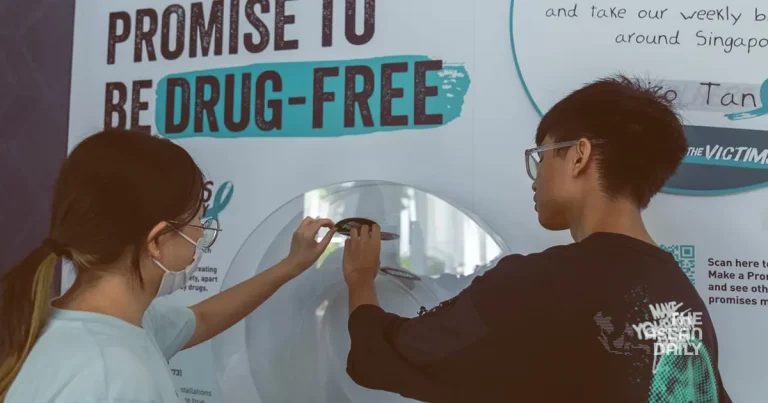11-7-2024 (SINGAPORE) In response to a worrying uptick in adolescent drug abuse, Singaporean authorities are evaluating a groundbreaking drug test kit capable of delivering near-instantaneous results. This development comes amidst growing concern over shifting attitudes towards narcotics among the city-state’s younger population.
Minister of State for Home Affairs and National Development, Muhammad Faishal Ibrahim, highlighted the alarming trend at the Central Narcotics Bureau (CNB) Workplan Seminar 2024 on 10 July. “In the first four months of 2024 alone, 16 drug offenders under the age of 16 were arrested, compared to 24 such arrests in the whole of 2023,” he revealed to an audience of over 600, including representatives from the Ministry of Education and anti-drug advocates.
Associate Professor Faishal expressed concern over the increasing prevalence of drug trafficking and abuse among youth, noting that offenders are getting younger. He also pointed to a widening generational gap in attitudes towards drug legality, referencing a recent survey where only 79% of youth, compared to 91% of adults, supported maintaining cannabis’s illegal status in Singapore.
The Minister attributed this shift to the proliferation of misinformation online and influences from foreign jurisdictions promoting a more lenient stance on drug use. This changing landscape has prompted authorities to explore innovative solutions, such as the new Instant Hair Test (IHT) kit.
Patrick Gan, a senior forensic scientist at the Home Team Science and Technology Agency (HTX), explained the revolutionary technology behind the IHT kit. The process involves grinding a hair sample into fine particles, releasing any drug residues into a solution. This solution is then analysed using a portable device, yielding results in under 10 minutes – a stark improvement from the current 30-day waiting period for traditional methods.
Remarkably, the IHT kit can detect narcotic use from months prior, making it an exceptionally powerful tool in the fight against drug abuse. “The drug stays inside our hair and cannot be simply washed off,” Gan cautioned. “Just don’t take drugs because the IHT kit will catch you.”
The CNB, in collaboration with the Singapore Prison Service and HTX, is currently evaluating the IHT kit, with the assessment expected to conclude in the latter half of 2025.
While authorities ramp up technological efforts to combat drug abuse, experts emphasise the crucial role of family and education in prevention. Carol Loi, a family coach and co-founder of SGFamilies, stressed the importance of parental engagement and education. “Parents need to get equipped with the relevant information to start conversations with their children on the harms of drug abuse,” she advised.
Educational institutions are also intensifying their efforts. Joycelyn Yeo, head of department for student management and leadership at Xinmin Primary School, highlighted the school’s proactive approach in preventing pupils from experimenting with drugs, acknowledging the risks posed by peer influence and social media exposure.




